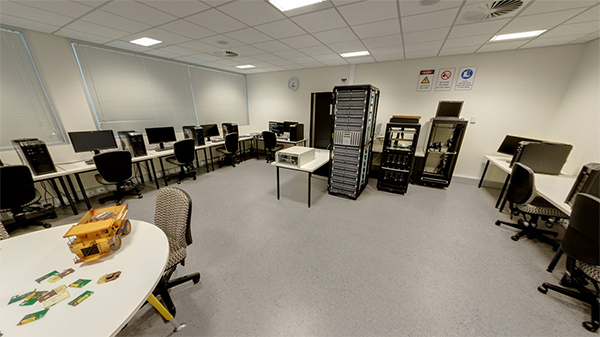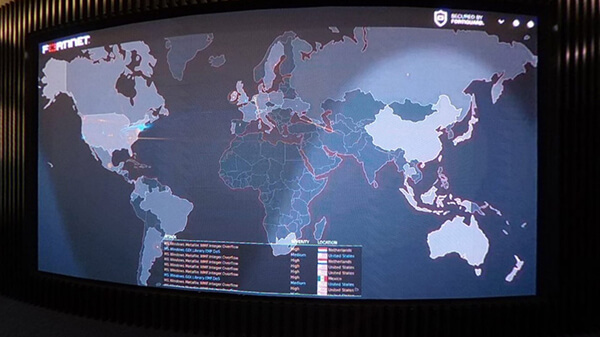Cyber Security Major
Code MAAAJB
Why study at ECU?
About this Major
This major focuses on both the practical and theoretical dimensions of cyber security across a range of fundamental areas.
These include network security and vulnerability assessment, information security, digital forensics, cryptography and ethical hacking.
Code
MAAAJBAvailability & Campus
| Location | Availability |
|---|---|
| Joondalup | |
| Mount Lawley | |
| South West | |
| Online |
Details
Structure
| Unit Code | Unit Title | Credit Points |
|---|---|---|
| CSI2108 | Cryptographic Concepts | 15 |
| CSG2305 | Computer Forensics | 15 |
| MAT3120 | Machine Learning and Data Visualisation | 15 |
| CSI3207 | Network Security Fundamentals | 15 |
| CSI3208 | Ethical Hacking and Defence | 15 |
| CSG3309 | IT Security Management | 15 |
| Elective Unit | x 2 | 30 |
| Unit Code | Unit Title | Credit Points |
|---|---|---|
| CSI1101 | Computer Security | 15 |
| CSG1105 | Applied Communications | 15 |
| CSP2101 | Scripting Languages | 15 |
| CSG2305 | Computer Forensics | 15 |
| CSG2344 | Project Methods and Professionalism | 15 |
| CSI3207 | Network Security Fundamentals | 15 |
| CSI3208 | Ethical Hacking and Defence | 15 |
| CSG3309 | IT Security Management | 15 |
For more detailed unit information for this Major take a look at our Handbook. To organise your life for next semester visit the Teaching timetable.
Student handbookNotes
Learning Outcomes
- Apply broad knowledge of concepts, principles and techniques in the discipline of cyber security, including network security and risk management.
- Analyse complex cyber security scenarios and incidents to design appropriate strategies to reduce, mitigate or respond to risk.
- Apply discipline knowledge, problem solving and creative thinking skills when undertaking cyber security engagements.
- Demonstrate technological literacy by finding, evaluating and using relevant tools and information from a range of sources.
- Communicate cyber security concepts and implications clearly and coherently to technical and non-technical audiences.
- Integrate concepts of diversity and a global outlook when undertaking cyber security engagements.
- Demonstrate an appreciation of the conventions and requirements for external collaboration when undertaking cyber security tasks.
- Demonstrate autonomous and ongoing learning to ensure continued relevance of capabilities, knowledge and awareness of emerging cyber security developments.
Career Opportunities
Employment opportunities
Careers opportunities exist in in the field of cyber security, including areas such as network security engineer, computer forensics analyst, information warfare analyst, cryptography, information security officer and information security analyst.
Possible future job titles
Cyber Security Analyst, Network Security Manager, Digital Forensics Investigator, Computer Security Manager, Information Security Manager, Computer Security Auditor, Computer Incident Investigator, Cyber Security Manager, Cyber Security Auditor, Cyber Incident Investigator.
This Major can be studied in the following courses
Experiences
Facilities
View our facilities
Student stories
The benefits of doing a work placement while studying
Bachelor of Computer Science student Mason learnt a lot during his Work Integrated Learning placement and was made to feel like he was part of the team right from the start.
The Important Things
Things you should know about if you're thinking about studying here.
Course Entry
There's more than one admission pathway into an ECU course. It depends on what you've studied already, or your work or life experience.
Fees & Scholarships
Course tuition fees can change, but we can give you an estimate of your costs. If you're eligible, a scholarship or student loan can help too.
Applying
Applying for a course is a fairly simple process, especially if you have scanned copies of qualifications, your resume or other paperwork, ready to upload.
ECU Experience
Starting a course is an exciting and sometimes daunting time, so we make a massive effort to ensure you get all the support you need to have a positive experience.








